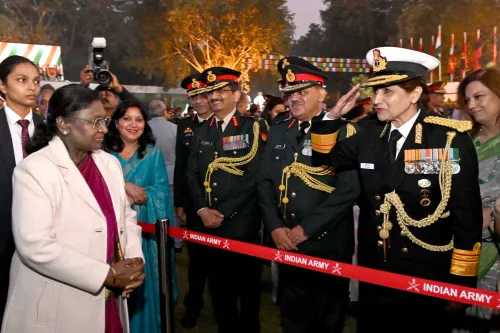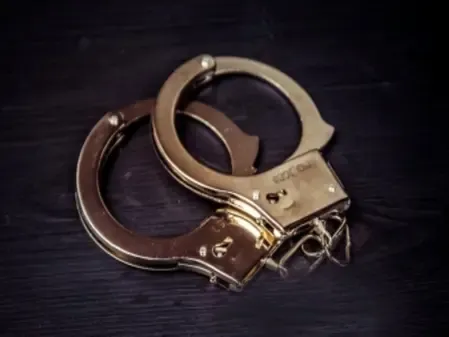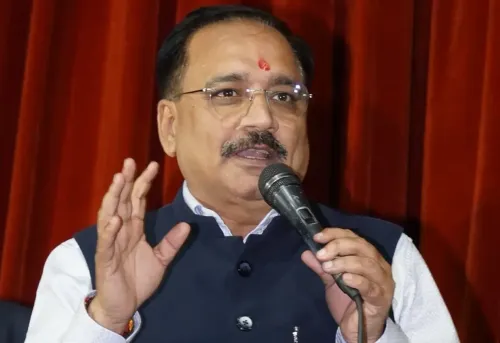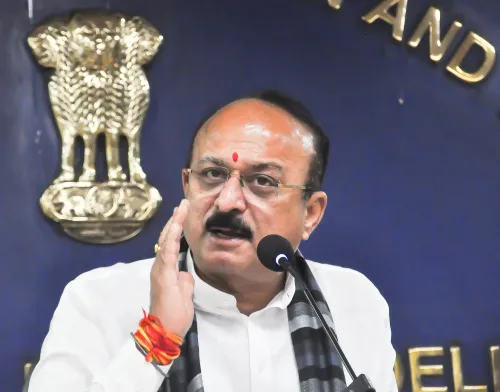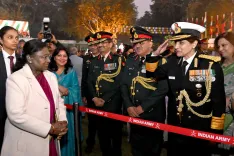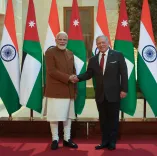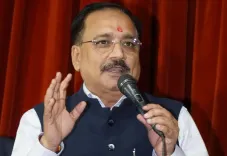Contradictions within AAP Government Regarding Tanker Mafia: New Findings
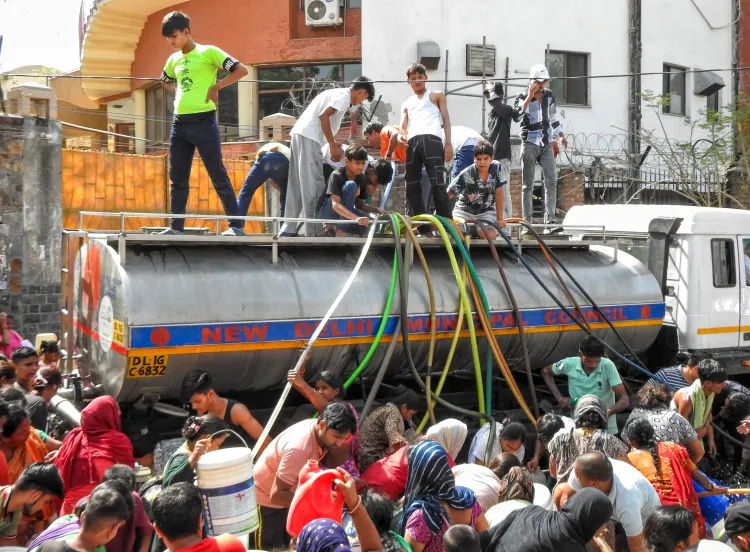
Synopsis
Key Takeaways
- AAP leadership in conflict over tanker mafia's reality.
- Corruption allegations within the Delhi Jal Board.
- Need for efficient government water supply to reduce private dependency.
- Health risks from contaminated water are escalating.
- Urgent investigations required into DJB's operations.
New Delhi, Jan 31 (NationPress) There exists a cognitive dissonance within the AAP leadership regarding the tanker mafia's presence and its detrimental impact in Delhi, which is grappling not only with a water crisis but also a governance crisis, according to a report titled 'Citizen's Guide – Decoding Delhi's Water Woes 2025' released on Friday.
The report, compiled by experts focused on public interest, emphasizes Chief Minister Atishi's prior statement from June 2024 about the collusion between officials of the Delhi Jal Board and the mafia, thereby affirming the mafia's existence. In contrast, it captures the AAP leader and former Chief Minister Arvind Kejriwal's assertion in a pre-election podcast that the private tanker mafia had been eradicated.
With one member of the ruling AAP in denial and another shedding light on the mafia's misdeeds, this Report, based on field surveys conducted in early January 2025, validates the existence of a flourishing tanker mafia in the city.
The report also highlights that alleged kickbacks are prevalent in DJB offices for the suspected diversion of treated water from government pipelines or borewells to private tankers.
The Report states, “The DJB's inaction in addressing complaints or pursuing legal action against known offenders creates an environment where the tanker mafia can operate with relative impunity.”
To combat this issue, the report proposes that the optimal strategy is to ensure that government-supplied water efficiently reaches all areas, thereby minimizing the need for private, often costly, or low-quality water supply.
Pointing towards alleged corruption within the water supply utility, the report mentions, “There have been serious allegations of DJB officials - including the CEO himself - colluding with the tanker mafia.”
As a solution, it suggests that authorities must thoroughly investigate the allegations of corruption within the DJB and prosecute anyone found complicit.
The report adds, “This level of criminality often involves some degree of political protection or patronage within the Delhi government, which also requires investigation,” hinting at the alleged complicity of leaders and ministers of the ruling AAP in shielding the tanker mafia.
Delhi's health indicators also reflect the city's contaminated water supply, pushing residents toward a slow demise.
Union Health Minister J. P. Nadda recently emphasized the rising cases of water-borne diseases in Delhi, stating that over 20,000 cases of diarrhoea and jaundice were reported in 2023-24.
The Health Minister pointed out that in 2022-23, at least 15,252 individuals fell ill due to contaminated water.
The report also discovered that Mohalla Clinics in East Delhi observed a significant surge in waterborne diseases, with typhoid cases doubling over the past year.
It notes, “Low-income groups (LIGs) are disproportionately affected, relying on tanker water or unregulated borewells. Residents in areas like Sangam Vihar face heightened incidences of waterborne diseases such as cholera, typhoid, and skin infections, alongside soaring costs for bottled water, RO purifiers, or private tankers,” according to the report.
This report was initiated to independently evaluate water quality, driven by growing public distrust in DJB’s daily testing reports and increasing health and economic burdens on residents. Conducted in early January 2025, this analysis revealed the severity of the crisis: Of the 30 water samples collected from across the city, 23 were deemed unfit for consumption.


